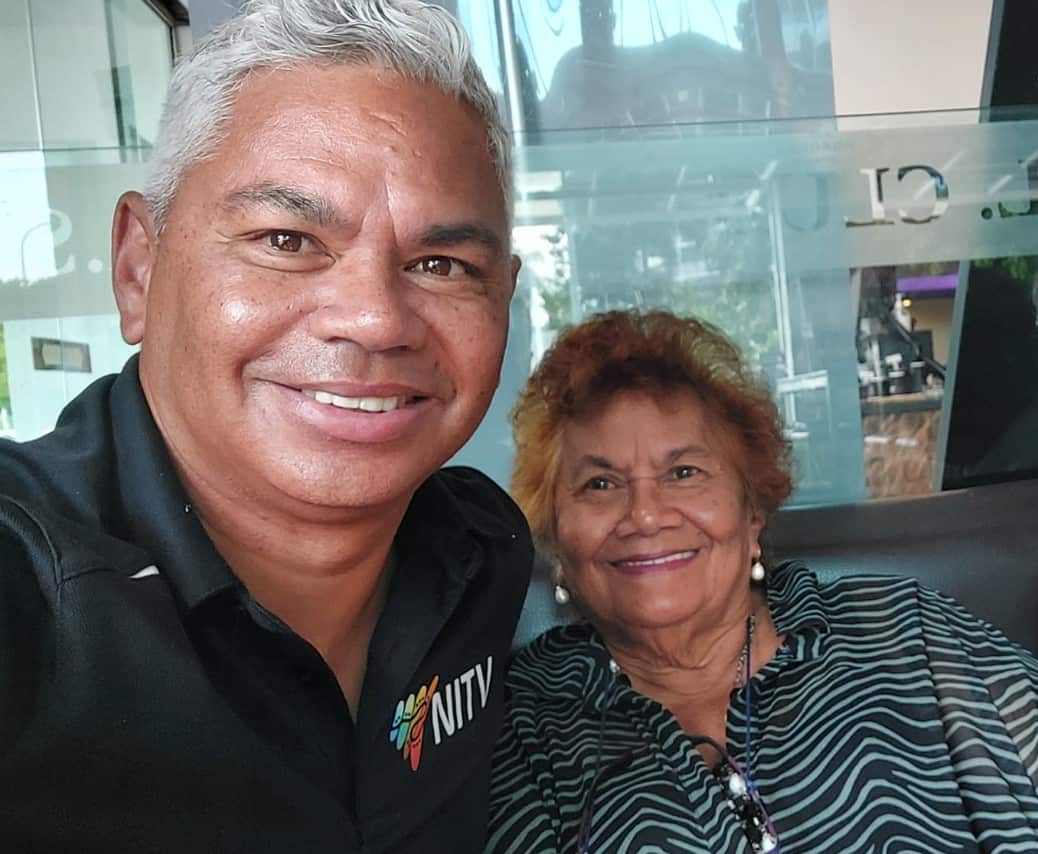For my family, the story of Cathy Freeman's Sydney Olympic gold medal started 15 years before that historic night at Homebush Bay on 25 September 2000.
The year was 1985. I remember it well. It was my final year of school in Canberra, and Aussie rock icon Jimmy Barnes had just released For the Working Class Man, an album that I blared on high rotation. I was living with my parents in south Canberra.
Back then, the national capital was the beating heart of elite sport, home to the Australian Institute of Sport (AIS). Promising athletes from across the country came to Canberra to build the foundations of international success. That year, the AIS invited a 12-year-old Cathy to be assessed for her athletic ability.
Rather than stay in the AIS dormitories, Cathy was placed with us at the suggestion of a mutual family friend. The idea was to provide her with a family environment — and importantly, an Aboriginal family environment — during her stay.
She was very young, very skinny, shy, and freezing. Canberra's winters are tough for anyone, but especially for a young Murri girl from Mackay in north Queensland.
Each morning, Cathy was picked up and driven across the city for training and testing, before being dropped off at home at night.
As the days wore on, the cold, fatigue, and relentless training took their toll. Cathy would come home exhausted, eat, and fall straight into bed. Sometimes not even eat. She was homesick and often made calls back to her mum. For two weeks, it was rinse and repeat. Every morning, my mum would have to wake her with a soft call from the bedroom door, or sometimes a gentle shake.
As Cathy's career blossomed — from school athletics to nationals, Commonwealth Games, World Championships, and ultimately the Olympics — my mum would often call me and proudly claim her part in Cathy's success.
"If I didn't wake her up, there'd be no gold medals," she would joke.
Mum followed Cathy's career sparkle with enormous pride.
At the Sydney Olympics in 2000, I stood among tens of thousands of other Australians at Tumbalong Park in Darling Harbour, watching Cathy's 400m final on a giant projection screen.
The starter's gun fired. Silence turned to thunder as the crowd roared her down the back straight. Cathy rounded the bend in third place, then exploded into the lead, powering through the home straight to stop the clock at 49.11. She crossed the line, collapsed, and a nation exhaled in unprecedented joy — Cathy in relief.
As the live site erupted, my phone rang. It was my mum, calling from 1,800km away in far north Queensland.
"She's won! She's won!" mum cried down the line.
"Our Cathy — our baby — has won!"

After 2000, whenever I saw Cathy at events, I'd share this story with her.
I told her how mum always joked that without her morning wake-ups, there'd be no Olympic gold.
In 2003, at her first book launch, I bought a copy for mum. Cathy and I laughed together as I asked her to sign it.
As I walked away, I flipped open the cover to see what she had written: "Joanna, thanks for waking me up. Love, Cathy."
Now in her early 80s, mum still calls her "our Cathy".
And since that September night 25 years ago, so too does the nation.
For the latest from SBS News, download our app and subscribe to our newsletter.

